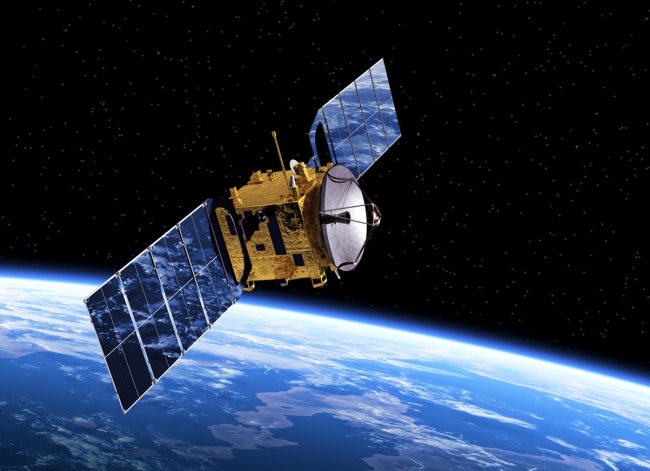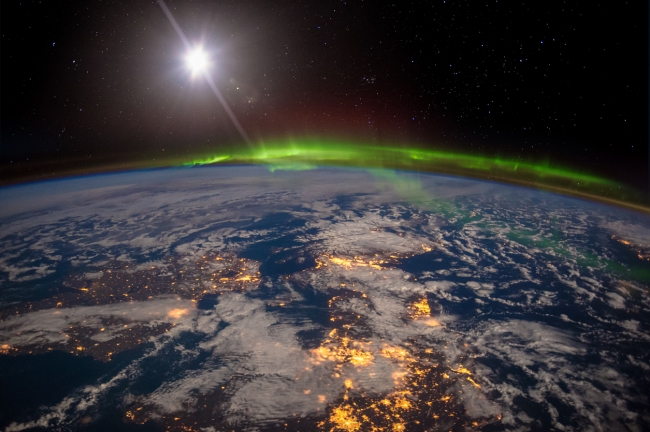3 minute read
Scottish space industry has £4bn growth ambition
The Scottish space industry could provide a launchpad for growth of the Scottish economy and provide solutions to tackle climate change.
Figures from a recent study by Scottish Enterprise show that income from the space sector in Scotland could reach over £2bn by 2030, as well as contribute data solutions to combat climate change. The industry ambition is to double this income to £4bn over the next ten years.
Scotland is home to a rapidly-expanding commercial space sector that has seen 12% growth year-on-year and is on a steady path due to the commercial responsiveness in what’s described as the ‘new space’ operating environment. New space takes in three distinct areas: space applications, manufacturing and operations, as well as auxiliary services.

The Scottish space industry has ambitions to double projected income to £4bn over the next ten years / Picture: Getty/iStock
Scottish Enterprise has supported many companies working across the space sector including Spire Global, Celestia, Clyde Space and Space Intelligence.
Spire Global, a data and analytics company, builds, tests and operates the world’s fourth largest fleet of nanosatellites tracking aviation, maritime and weather patterns and received a combined investment and grant of £14.7m last year from Scottish Enterprise.
Spire Global has just sent the first of four nanosatellites to space (Sep 28, 2020) with powerful super computers on board to track world trade and predict the arrival time of boats to help port authorities manage docks safely.
Recently, the company has provided its weather data free of charge to weather forecasting centres around the world including the UK Met Office, as the coronavirus pandemic and loss of aircraft data impacted weather forecasting. The company has also secured a $7m deal with NASA to provide data to scientists for use in Earth-observing missions and early projects have shown the potential to improve weather forecast accuracy.
Peter Platzer, chief executive officer of Spire said the deal with NASA was a landmark moment for the company and the space industry, and feels that space and Earth observation have a strategic role in meeting European and global challenges, such as pandemics and climate change.
He added: “Weather risk for companies, governments, and people is constantly increasing due to climate change and is maybe the biggest generational challenges we face. Spire is incredibly humbled and inspired that our data and analytics can meaningfully contribute to the world facing this challenge collaboratively and globally.”

Scotland is home to a rapidly-expanding commercial space sector that has seen 12% growth year-on-year / Picture: Getty/iStock
Ivan McKee, minister for trade, investment and innovation, added: “Our ambition is to capture the substantial economic benefits of the emerging global space sector by ensuring Scotland becomes the first country in Europe to provide an end-to-end solution for small satellite manufacture, launch and innovation in satellite data analysis, including critical earth observation and environmental data.
“Scotland is proud to be the home of the rapidly-expanding commercial space sector which is supported by the close collaboration between government, industry and academia through the Scottish Space Leadership Council.
“The space sector in Scotland also has a key role to play in tackling climate change. Having the ability to launch satellites here in Scotland will enable the expansion and enhancement of earth observation and environmental data which will enable a real and meaningful contribution to efforts to tackle the climate emergency.”
David Smith, director of national opportunities for Scottish Enterprise, concluded: “It is great to see the continued growth and ambition to double the forecast income to £4 billion by 2030 and although there is a long way to go, there is a wealth of talent to get there alongside support from Scottish Government and Scottish Enterprise.
“It is an exciting time for space and as we emerge from the Covid-19 pandemic it is important to focus on areas of strength in our economy. Not only that, but with climate change and our focus on green recovery, the space data sector also has a key role in delivering net zero ambitions too.”